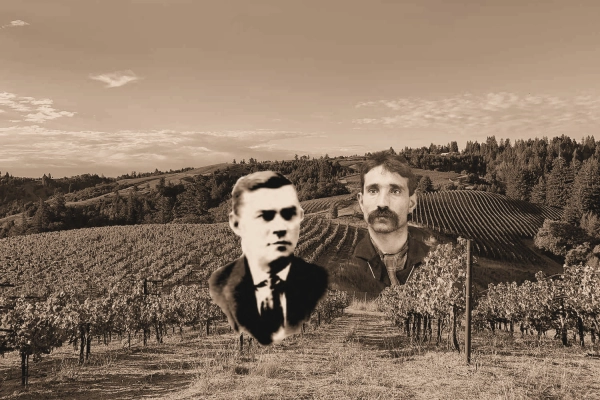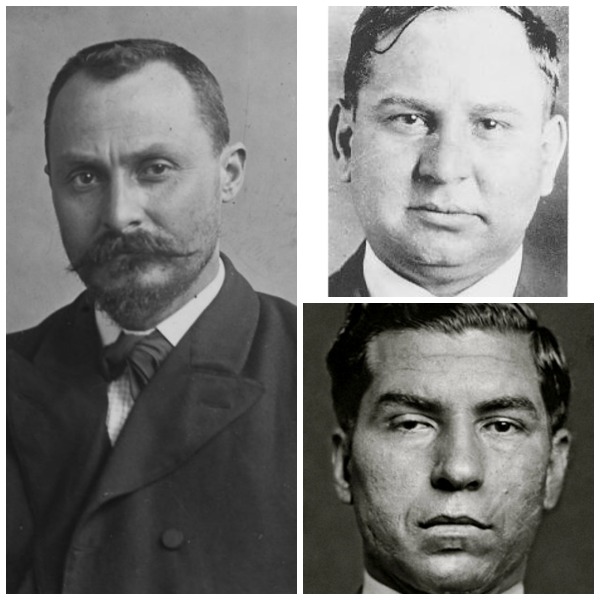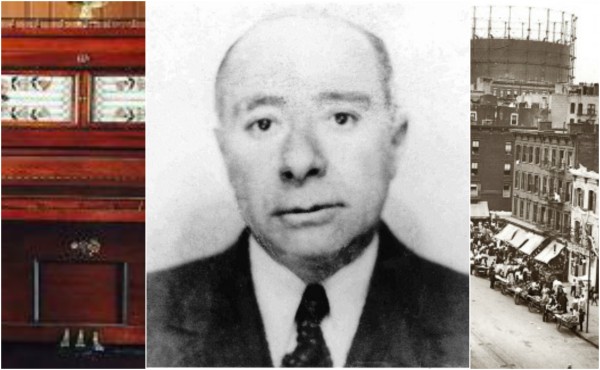Giovanni Pecoraro seemed to know everyone Morello knew, and was a suspect in the most notorious Mafia conspiracy of his age. So why haven’t we heard of him?
How did Lucia Terranova’s first Mafia marriage end?
For years, I assumed Lucia Terranova’s first marriage ended with her husband's murder in 1903. Then I saw this census record.
Giuseppe Morello and the Macaroni Wars
New Orleans Mafia boss Francesco Genova attempted to take over a macaroni factory in Donaldsonville, in northeastern Louisiana. The legitimate owners, Antonio and Salvadore Luciano, fought back, but were unlucky enough to miss....
Giuseppe Morello’s counterfeiting gang
In the summer of 1909, detective William Flynn sought the source of counterfeit bills flooding banks and businesses in several cities across the United States. He tied the counterfeiting operation to Giuseppe Morello’s gang by following one of the passers of bad bills, Giuseppe Boscarino.
The Castellammarese War
The Castellammarese War of 1930 in New York was a colonial war. On one side was Joe Masseria, the most powerful figure in organized crime, with a coalition of allies including the Corleonesi Giuseppe Morello, Lucky Luciano (from Lercara Friddi), and Al Capone (born in New York of Italian mainland parents). On the other side were Salvatore Maranzano and the Castellammarese, backed by Don Vito Cascio Ferro, one of the most powerful men in Sicily....
Looking for Steve LaSalle
There are three first cousins from Corleone who immigrated to New York around the same time, and had the same name: Stefano la Sala. One would become known as Steve LaSalle, a high-ranking member of the Lucchese crime family for half a century.
Legacy of the Rapanzino gang
While most of Rapanzino’s gang was exterminated by the police in the mid-1830s, their legacy continues, with a clear line of descent, all the way to the Five Families of New York and the Mafia in Corleone today. The Rapanzino gang of cattle thieves, active in the early 1830s in Palermo province, were closely related... Continue Reading →
The family of Giuseppe Morello
There are many undocumented claims made about the relationships between notable mafiosi. One mafia writer who has led me on a merry chase for the mythical relations of Giuseppe Morello is Joe Bruno. In a blog post from 2005, he repeats the legend that Giuseppe had an older brother named Antonio. Antonio Morello was born... Continue Reading →
Here comes the ice man
Refrigeration---and the mafia---are both older than you might think.
The godfathers of the American South
In Mario Puzo’s novel, “The Godfather,” Vito Corleone is called by the name of his hometown because he was fleeing the mafia. But why was he called “don”? In the US, we don’t have a term similar to this Sicilian honorific. The Southern custom of calling elders “Mister” or “Miss,” along with their given... Continue Reading →









